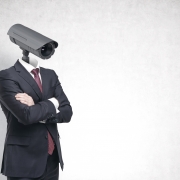When Protectionism Jeopardizes the Privacy Rights of Entrepreneurs
Protectionism just reached new heights in Chicago and it’s jeopardizing the Fourth Amendment rights of entrepreneurs. Following the rise in popularity of food trucks and at the behest of brick and mortar establishments, the city of Chicago enacted new laws that required food trucks to be at least 200 feet from any physical business.
Brick and mortar retail establishments feared having to compete with the food trucks, which is how this entire ordinance came about, to begin with. And to be sure, they should be worried. Food trucks, in addition to online retailers, have completely changed the marketplace with their non-traditional means of conducting business. It’s not uncommon for food trucks to form connections with consumers over social media platforms like Twitter. Not to mention, the “pop-up” culture has made roaming retail all the more exciting for young consumers.
But rather than change their own business models in order to create stiffer competition, Chicago retailers have chosen instead to ask the city government to create silly protectionist policies. In the case of the new “200 feet” ordinance, the city reasoned that if food trucks were forced to keep their distance, consumers might not be “lured” away by physical retailers.
And as ridiculous as this may sound, the situation actually gets much worse.
In order to enforce this law, city officials need to know exactly where these food trucks are parked. So, in addition to mandating their location, another new ordinance requires food truck owners to allow the government to place GPS tracking devices inside the vehicles. This would help the state keep tabs on the businesses and ensure they are not parked “too close” to physical retail establishments.
Seeing this as not only a blatant act of protectionism but also as a clear violation of their privacy, food truck owners tried to fight the city ordinances in court. But unfortunately, the ordinances were upheld in the lower courts, striking a blow to entrepreneurial freedom.
The lower court held that the GPS requirement did not violate privacy since there was no “physical” intrusion by the hand of the government. It was actually argued that since private companies did the actual installing of the GPS devices, the government was not technically involved with the surveillance. But this is absolutely absurd.
Not to mention, in prior rulings, it has already been established that the government cannot skirt its responsibility by hiring third-party contractors to do their dirty work for them, like installing GPS devices.
To make matters worse, when the court made their ruling, they gave even further power to the state when it came to issuing occupational licenses. Occupational licenses are already a source of contention, as they are routinely used to keep new competitors out of a given sector. But the recent ruling actually allows the state to refuse business licenses to anyone who refuses to wave their Fourth Amendment rights by agreeing to the installment of a GPS device.
This is an extremely dangerous precedent to set. And while it may be business owners today, it could be anyone with a driver’s license tomorrow. As Ilya Shapiro says:
“Carried to its logical conclusion, such judicial indulgence would permit the government to condition issuing driver’s licenses on the installation of GPS trackers, or on standing consent to random searches of the owner’s vehicle.”
Luckily, the fight is not over yet. Cato joined with the National Food Trucks Association and the Illinois Food Truck Owners and filed a brief urging the higher court to reconsider.
If we do not have economic freedom, we do not have freedom period. It is sad that protectionism has reached such an ugly state where entrepreneurs now risk being under constant surveillance from the state.




